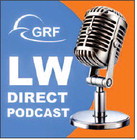Tips to help you get better and deeper sleep
SLEEP WELLNESS
Getting enough sleep helps you stay healthy and alert. However, many older adults don’t sleep well. Waking up every day feeling tired is a sign that you are not getting the rest you need and might need to speak with a doctor.
Sleep and Aging
Older adults need about the same amount of sleep as all adults, 7–9 hours, each night.There are many reasons why older people may not get enough sleep at night. No matter the reason, if you don’t get a good night’s sleep, the next day you may feel irritable, have memory problems or be more forgetful, start feeling depressed or have more falls or accidents. Getting a Good Night’s Sleep
Being older doesn’t mean you have to be tired all the time. You can do many things to help you get a good night’s sleep. Here are some ideas: Follow a regular sleep schedule.
Go to sleep and get up at the same time each day, even on weekends or when you are traveling.
Avoid napping in the late afternoon or evening, if you can. Naps may keep you awake at night.
Develop a bedtime routine.
Take time to relax before bedtime each night. Some people read a book, listen to soothing music, or soak in a warm bath.
Try not to watch TV or use your computer, cell phone, or tablet in the bedroom. The light from these devices may make it difficult for you to fall asleep. And alarming or unsettling shows or movies, like horror movies, may keep you awake.
Keep your bedroom at a comfortable temperature, not too hot or too cold, and as quiet as possible.
Exercise at regular times each day but not within three hours of your bedtime.
Stay away from caffeine and alcohol late in the day. Caffeine (found in coffee, tea, soda, and chocolate) can keep you awake. Remember, alcohol won’t help you sleep. Even small amounts make it harder to stay asleep.
Insomnia is Common in Older Adults Insomnia is the most common sleep problem in adults age 60 and older. People with this condition have trouble falling asleep and staying asleep.Those who have insomnia may experience taking a long time to fall asleep, waking up many times in the night, waking up early and being unable to go back to sleep, waking up tired or feeling sleepy during the day.
Often, being unable to sleep becomes a habit. Some people worry about not sleeping even before they get into bed. This may make it harder to fall asleep and stay asleep.
Some older adults who have trouble sleeping may use overthe- counter sleep aids. Others may use prescription medicines to help them sleep. These medicines may help when used for a short time. But remember, medicines aren’t a cure for insomnia. Developing healthy habits at bedtime may help you get a good night’s sleep.
Tips to Help Fall Asleep
You may have heard about some tricks to help you fall asleep. A classic trick you could try is counting slowly to 100. Some people find that playing mental games makes them sleepy.
Some people find that relaxing their bodies puts them to sleep. One way to do this is to imagine your toes are completely relaxed, then your feet, and then your ankles are completely relaxed. Work your way up the rest of your body, section by section. You may drift off to sleep before getting to the top of your head.
If you feel tired and unable to do your activities for more than 2 or 3 weeks, you may have a sleep problem. Talk with your doctor about changes you can make to get a better night’s sleep.
- from www.nia.gov



